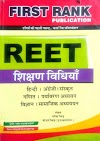The Staff Selection Commission (SSC) Combined Graduate Level (CGL) examinations are held for recruiting to various posts into the Central Government and its various departments. SSC CGL exam is conducted at the national level in India. Candidates who have passed their graduation or who are appearing in final year are eligible to take part in this exam. As we know that the exam is tough and so as the competition. There is a cut throat competition up ahead. Therefore, to help you in the otherwise daunting task, here are some tips and tricks that you can go through to crack SSC CGL Tier I Exam.
Read- How to crack SSC CGL exam in the first attempt?
First, let’s discuss the scheme of Tier 1 examination-
Read- How to crack SSC CGL exam in the first attempt?
First, let’s discuss the scheme of Tier 1 examination-
Subject
|
No. of Questions
|
Marks
|
General Intelligence
& Reasoning
|
25
|
50
|
General Awareness
|
25
|
50
|
Quantitative Aptitude
|
25
|
50
|
English Language
|
25
|
50
|
Total
|
100
|
200
|
The CGL Tier 1 exam will be an online test. You will get 60 minutes to attempt all the 100 questions. There is no sectional time limit so you have the liberty to attempt various sections in any order you want. The cutoff for the exam is overall and not section wise. Each question will carry 2 marks with a penalty of 0.5 marks if done wrong. So it becomes quite important for you to maintain accuracy otherwise instead of going two steps forward, you may end up half a step behind.
Suggested Study Plan
Well, planned preparation can help you clear the exam in the first attempt. Before you begin your preparation you should know about what to prepare for the exam because if you do not know correctly as what you have to study, your preparation can never be correct. A minimum of 10 hours should be put in daily for the preparation of the SSC CGL Tier I Exam.
Daily time allocation
Section
|
Duration
|
General intelligence
|
2 hours
|
General awareness
|
2.5 hours
|
Mathematics
|
3 hours
|
English
|
2.5 hours
|
Now let’s go through every section individually and device a strategy that can give you the impetus you require to ace this exam.
General Intelligence and Reasoning:
The reasoning is purely based on logic and is not just a mathematical skill. So, this section needs much attention as it is quite a tricky one to solve. However, it is advised that you allocate not more than 20 minutes to this section. The mantra here is to practice all the type of questions as many times as you can. Below are some important topics that should be done in order to get good marks.
- Blood Relations
- Syllogism
- Statement and Conclusions
- Directions
- Seating Arrangements
- Ranking
- Data sufficiency
- Puzzles
- Non-Verbal Reasoning
- Coding-Decoding
- Analogy
- Classification
Quantitative Aptitude:
The Quantitative Aptitude section may be the most difficult and time-consuming section among all the sections of the Tier I paper. Before you start preparing for this section, just keep in mind that quantitative aptitude is not only important for Tier I, but also for Tier II.so what you need to do is to practice all variety of questions with their shortcut techniques( if any) to solve them in the split of a second. The syllabus includes the following topics:
- Number Systems
- Simple Interest & Compound Interest
- Time & Work
- Time & Distance
- Profit & Loss
- Percentage, Allegations
- Mensuration
- Geometry
- Trigonometry
- Average, Ratio and Proportion
- Probability
- Data interpretation
You can also Download Mathematics Notes in Hindi by paying a nominal fee.
General English:
English Language is one such section that can place you in a better position in the recruitment process. This section demands your skills in Basic English Language Comprehension, Vocabulary and Grammar. If you could attain proficiency in English, half the job is done for you. This section is also there in Tier II exams. So, you should practice reading a lot and make reading your daily habit. Apart from reading, you have to solve mock test papers. Topics to give more focus on are:
- Sentence Improvement
- Reading comprehension
- Spotting Errors
- Synonym/Antonym
- one-word substitution
General Awareness:
This is the most scoring section of the SSC CGL Tier I paper. If you are well prepared in this section, it would take you no more than 10-15 minutes in attempting the entire section. This section is quite vast and requires a huge dedication. The exam usually has more questions from static GK than Current Affairs. Therefore, you must solve previous year’s papers and stay in touch with daily current affairs. Grab the complete knowledge of History, Geography, Polity, Economics and General Science as well.




